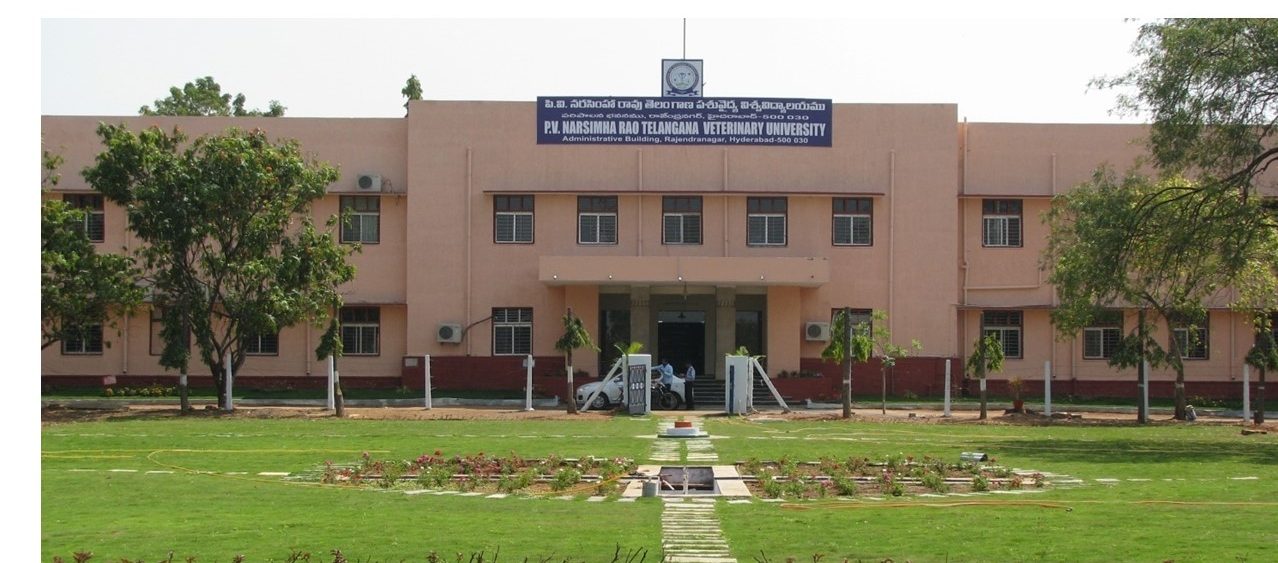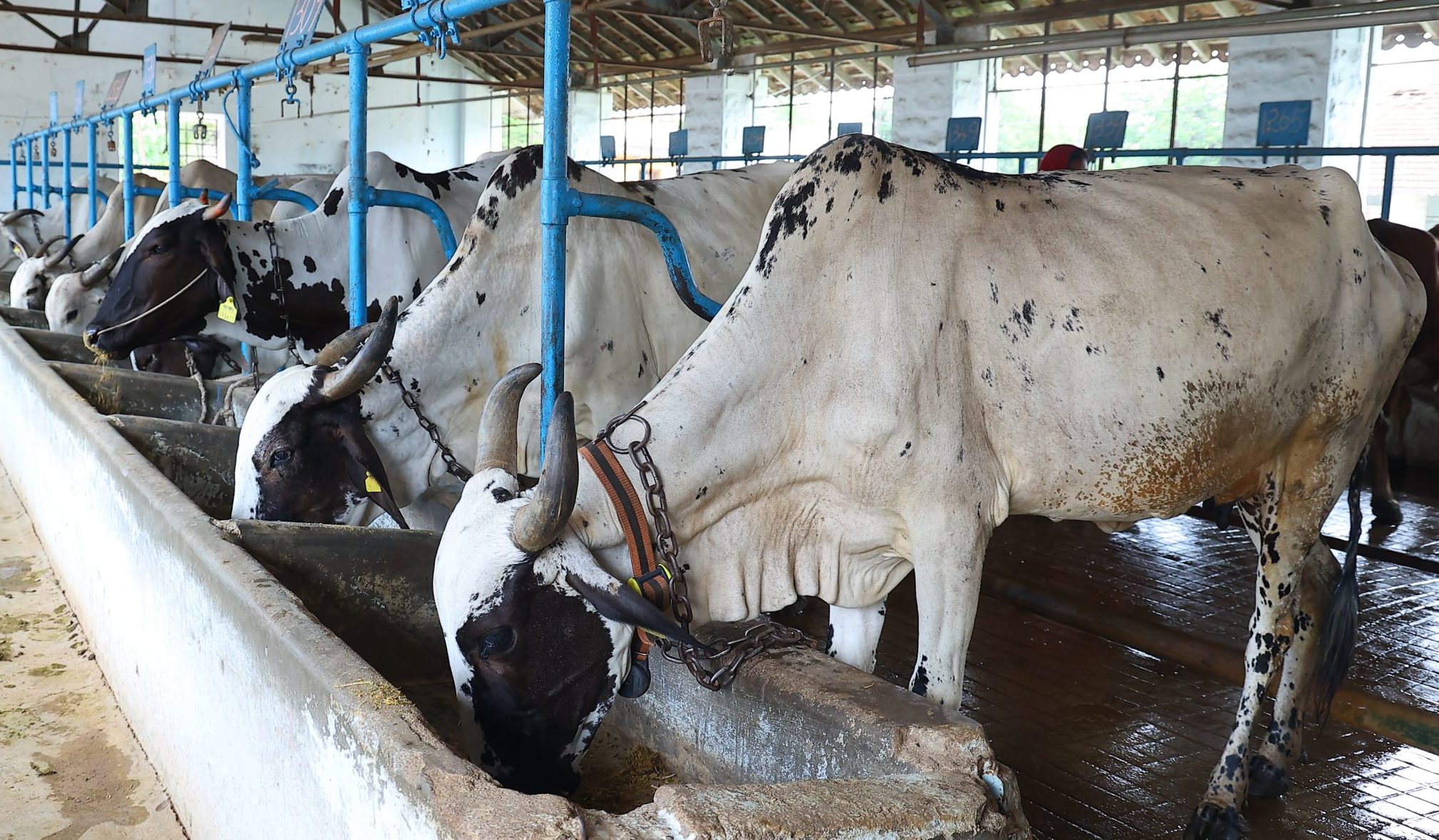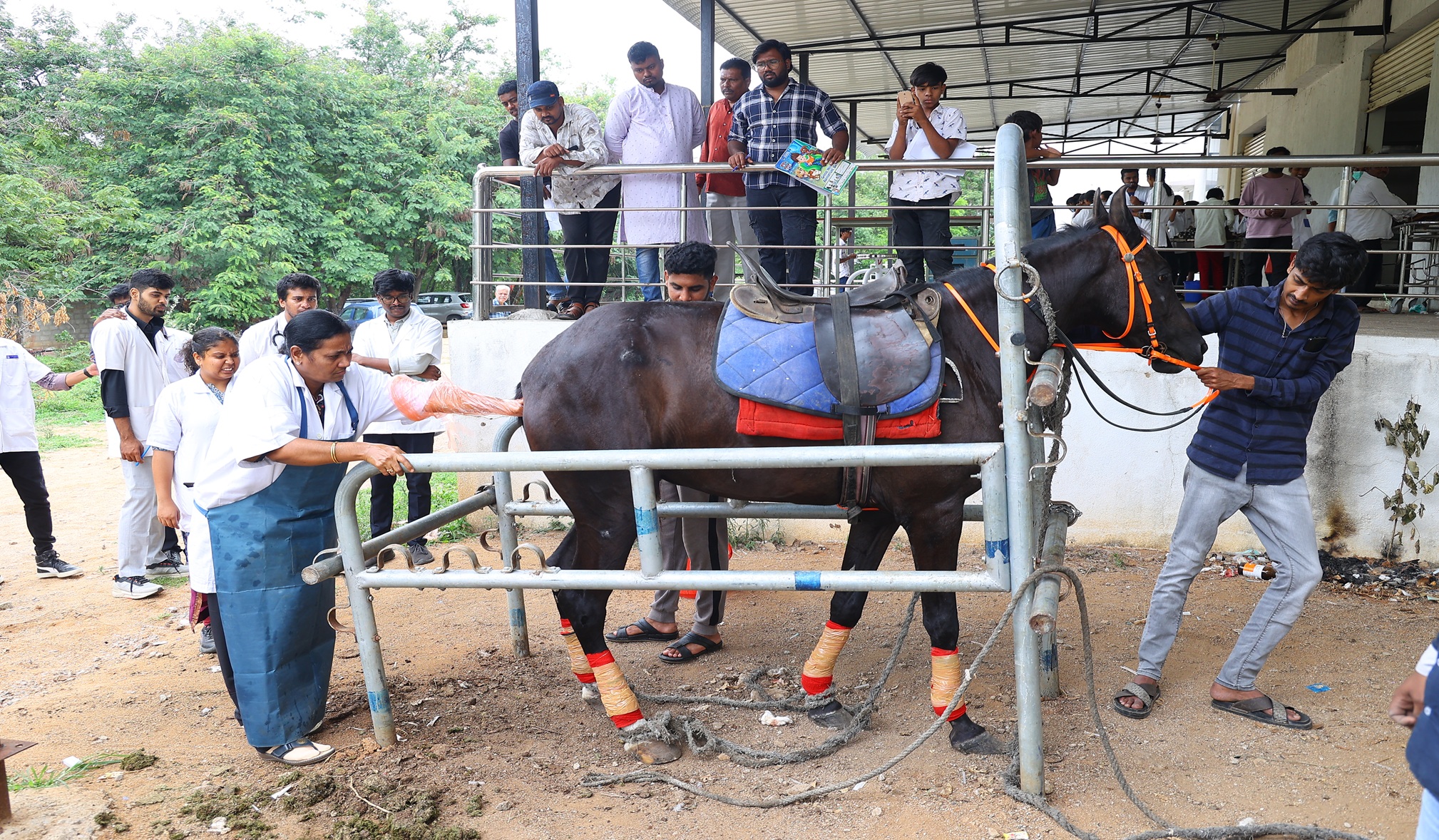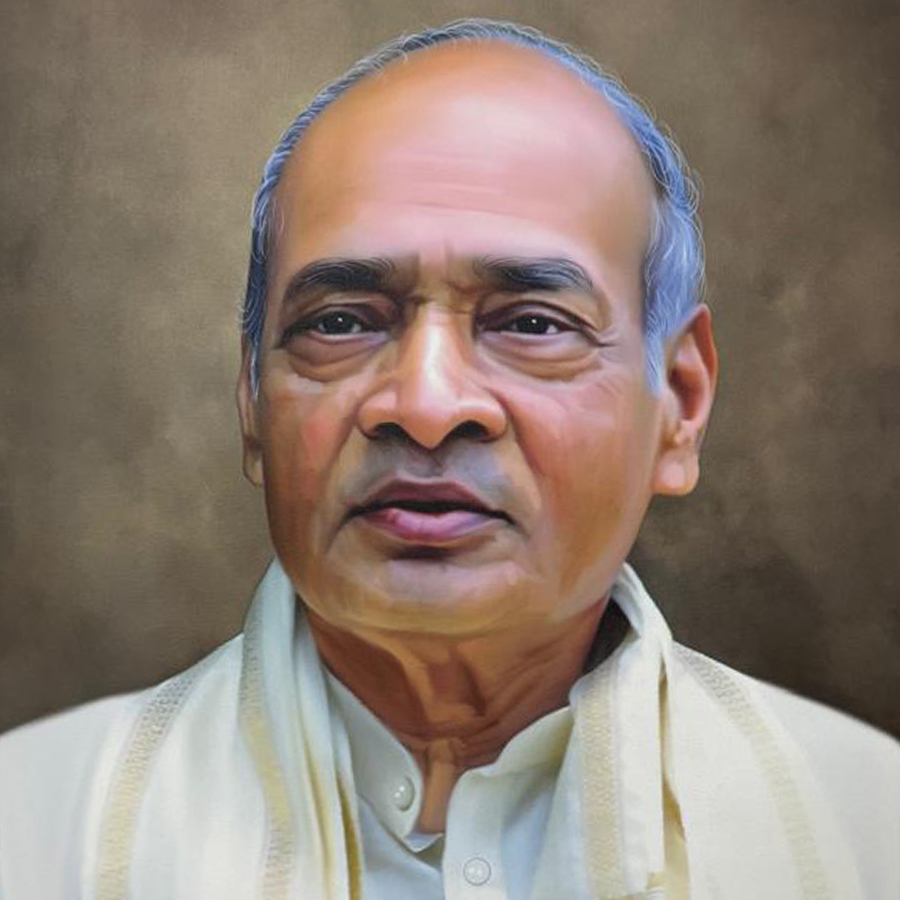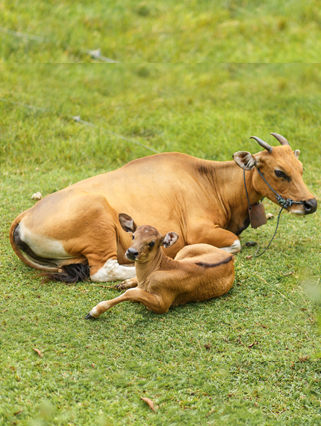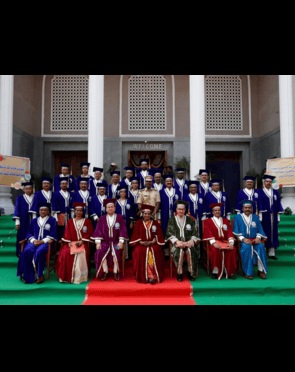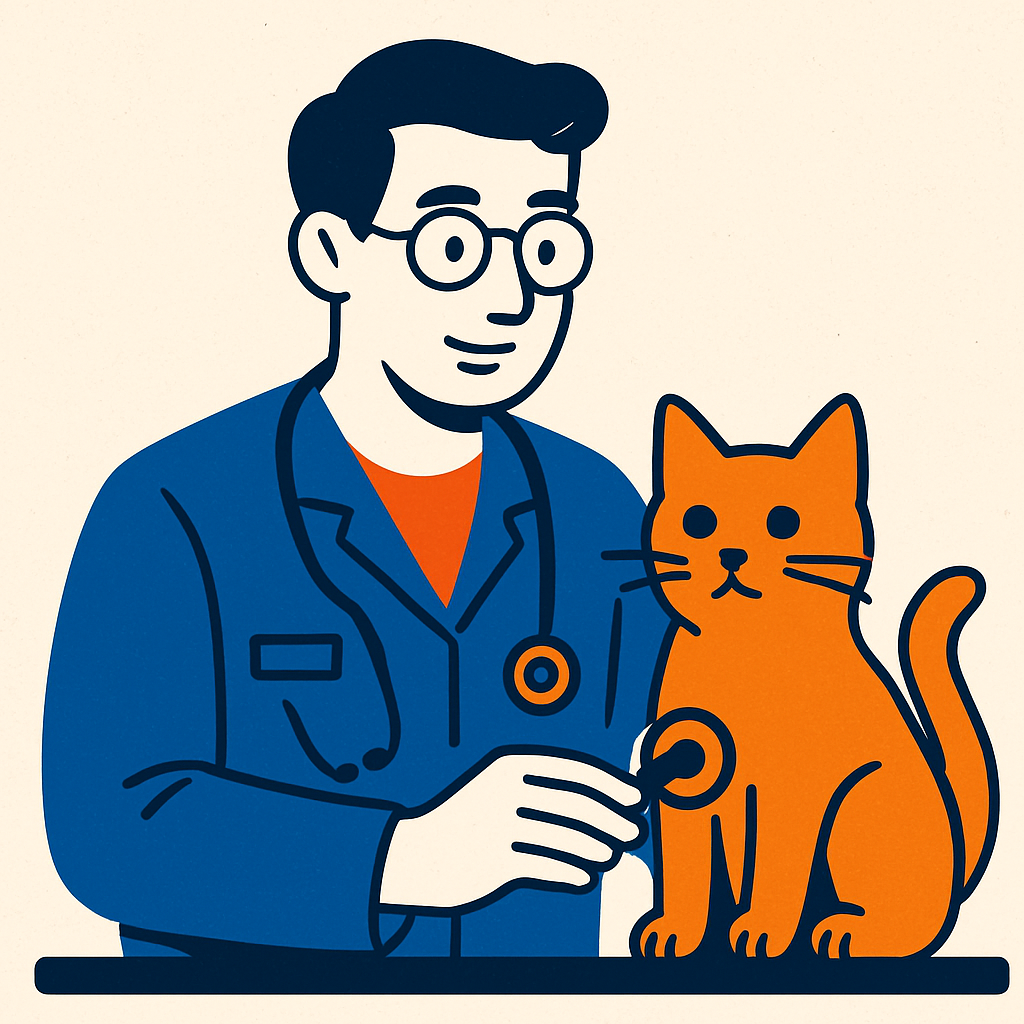
About Us
Home >About Us
P.V. Narsimha Rao Telangana
Veterinary University
Telangana, the 29th state of the Indian Union, located in the south-central region of India on the Deccan Plateau. It is a landlocked state characterized by undulating terrain, rocky landscapes, and a predominantly semi-arid climate.. The state is predominantly drained by two major rivers—the Godavari and the Krishna. As an agrarian economy, Telangana is largely dependent on rain-fed agriculture, with livestock playing a vital role in supporting rural livelihoods and contributing significantly to the state’s economy.
The history of veterinary science in the region dates back to the pre-Independence era, when the erstwhile Nizam of Hyderabad established the first Veterinary College in Hyderabad in 1946, as a constituent college of Osmania University.
As part of the Government of India’s initiative to reform agricultural education by adopting the land-grant university model, the Andhra Pradesh Agricultural University (APAU) was established in 1964 to integrate teaching, research, and extension in agriculture and allied sciences. In line with this vision, the College of Veterinary Science, Rajendranagar, Hyderabad, was transferred from Osmania University to APAU in 1974.
To further streamline academic focus, a separate university—Sri Venkateswara Veterinary University (SVVU)—was established on 12th June 2005 with its headquarters at Tirupati, Andhra Pradesh, to promote exclusive development in the fields of Veterinary, Animal, and Fisheries Sciences.
Following the bifurcation of the state in 2014, the Government of Telangana, recognizing the pivotal role of livestock in rural development and the state economy, established the P.V. NarasimhaRao Telangana Veterinary University (PVNRTVU). Named after the illustrious son of the soil and former Prime Minister of India, Shri P. V. Narasimha Rao, the university was envisioned to empower farmers, students, and professionals through quality education, need-based research, and effective extension in Animal, Veterinary, Dairy, and Fisheries Sciences, thereby ushering in a new era of growth and innovation in Telangana’s livestock sector.
Since its inception, the University has made rapid strides in expanding both its academic programs and infrastructure. Recognizing the growing demand for skilled manpower in Veterinary and Fishery Sciences, the University, in addition to the existing Veterinary Colleges at Hyderabad and Korutla and the College of Dairy Technology at Kamareddy, has established a College of Fishery Science at Pebbair and a College of Veterinary Science at Warangal. Furthermore, another Veterinary College is currently under development at Kodangal.
To meet the evolving needs of teaching, research, and service, the University has established state-of-the-art facilities, including Veterinary Hospitals at all Veterinary Colleges, Feed Analytical Laboratories, and advanced Embryo Transfer and Animal Biotechnology Laboratories. Extension and outreach activities are actively conducted by all constituent colleges and the KrishiVigyan Kendra (KVK), with strong involvement from both students and faculty, ensuring that the benefits of innovation and research effectively reach the grassroots level.
Further, the University has also established state of the art Veterinary Hospital, Feed analytical laboratories, Embryo Transfer and Animal Biotechnology laboratories to keep pace with the Teaching and Research needs of students and Service needs of farmers and pet owners. Extension activities are taken care of by all the Colleges and Krishi Vigyan Kendra involving both students and faculty
